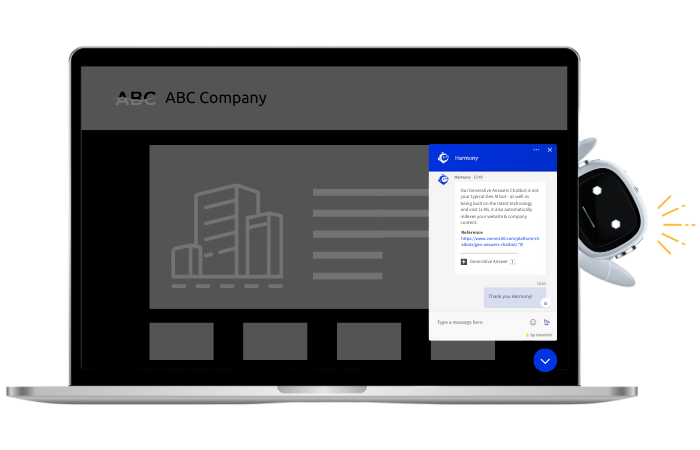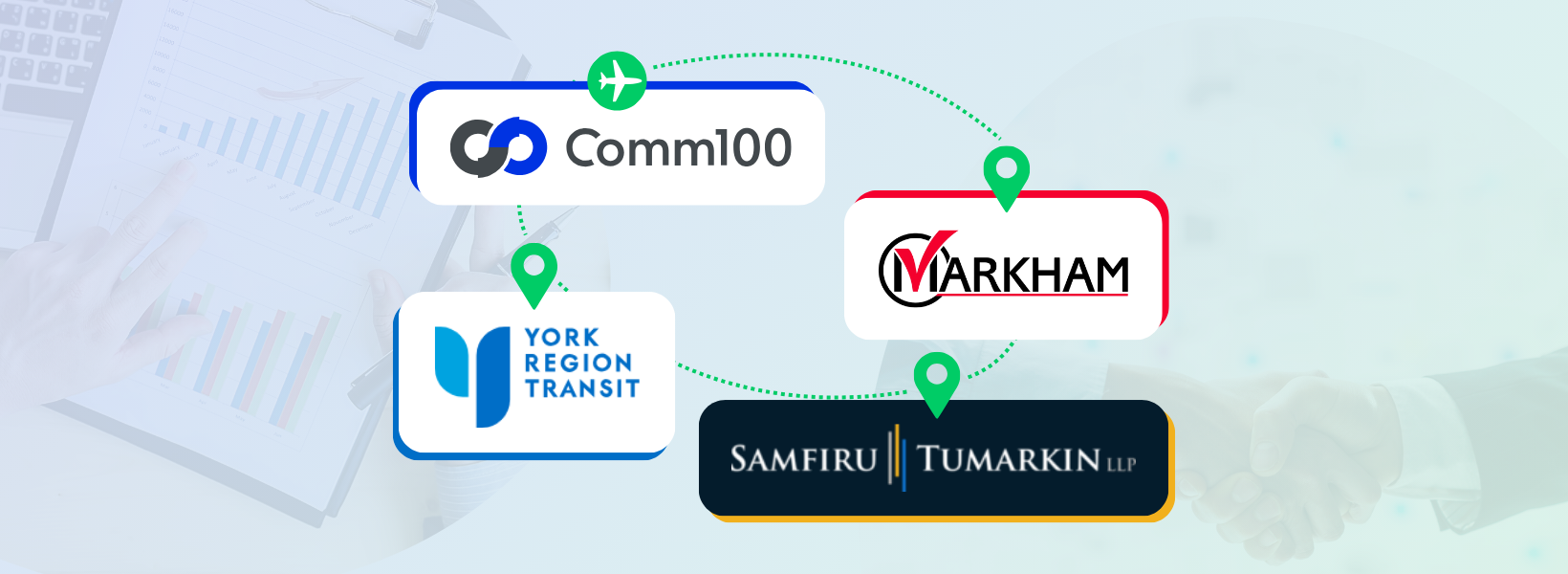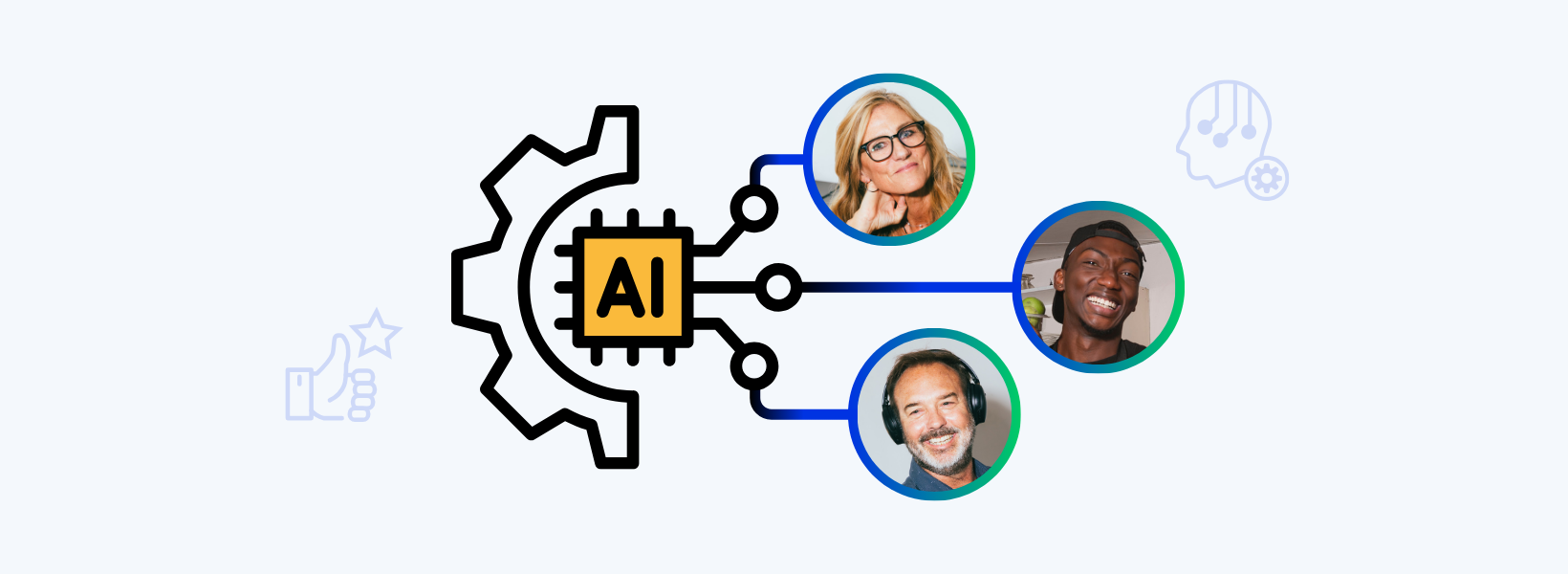We’ve now reached the fourth and final part of our series exploring Digital Transformation in Customer Service. So far in the series, we’ve covered:
- Why You Can’t Afford to Ignore It, introducing the many benefits of digital transformation in customer service, including reduced costs, improved CSAT scores, improved efficiency, and much more.
- The Building Blocks for Successful Digital Transition, exploring strategies for boosting success in a customer service transformation.
- 5 Customer Service Wins, looking at success stories from companies that transformed their customer service using live chat and ai chatbots to improve customer experience and grow capacity.
In part four, we’ll look at the security implications of digital transformation in customer service. When implementing a technology solution, it’s important to consider the security impacts and risks that come with transitioning to the digital landscape. Thankfully, these risks can be easily mitigated by following best practices and choosing the right software.
By the end of the article, you’ll understand how to navigate common security pitfalls, and which security features will matter most to you and your organization.
1. Gaining Trust Through Data Security
When introducing digital transformation to customer service, the security of your customers’ data should be at the forefront of your decision-making. Holding customer data places expectations on organizations, and customer trust is not a given. In fact, research has shown that only 21% of consumers said they believed that established global brands would keep their personal information safe.
A focus on data security is therefore one way that companies can differentiate themselves today. By keeping your customers’ personal info safe, you can gain their trust – and their business too.
Selecting the right software is the first place to start. By choosing a vendor that takes security seriously, reflected by the number and standard of its security compliances, you can be confident that your and your customers’ data is safe. Comm100 can demonstrate its commitment to data security with the highest security standard in certificates that prove it:
System and Organization Controls (SOC) certification is an external auditing process that demonstrates an organization’s internal controls over information systems. SOC reports look for controls related to security, availability, processing integrity, confidentiality, and privacy. SOC 2 Type II reports look at the effectiveness of these systems over time.
The ISO 27001 standard is recognized worldwide. This standard details requirement for establishing, implementing, maintaining, and continually improving an information security management system. To get this certification, an accredited certification body must audit the organization.
The Payment Card Industry Data Security Standard (PCI DSS) is an information security standard for organizations that handle payment processing. This standard is enforced through regular compliance to ensure that companies handling credit card information maintain a secure environment.
The Health Insurance Portability and Accountability Act (HIPAA) is a U.S. standard for data protection in the health industry. This standard stipulates how personal information is maintained and how it is accessed. Certification in HIPAA requires an audit by a third-party organization.
General Data Protection Regulation (GDPR) is used throughout the European Union and applies to the data of anyone located in the European Economic Area (EEA). GDPR provides requirements related to processing of personal data, and penalties for violating the GDPR are very high.
The Personal Information Protection and Electronic Documents Act (PIPEDA) is a Canadian law regulating data privacy. This law covers how private organizations collect, use, and disclose personal information while conducting business. Under PIPEDA, information can only be used for the purposes for which it was collected.
Maintaining these compliances and certifications means that an organization takes personal data protection seriously. Companies like Comm100 holding these certifications demonstrate commitment to the values of data security, data availability, and transparency. Before trusting your company’s data or the data of your customers to a third party, look for these certifications to ensure they can be trusted.
2. Hosting That Meets Regulatory Needs
The regulations and security standards that your organization complies with can have big impacts when it comes to deciding what solutions you choose for your digital transformation. For example, when introducing live chat to your customers, you’ll need to decide what kind of hosting solution to use. Cloud-hosted and self-hosted (also called on-premise) options are available, and both have unique benefits.
Cloud Hosted
A cloud-hosted live chat exists on a remote server owned and operated by a third party. This is the most common deployment option for live chat. Cloud-hosted chat is easy to get up and running, has low setup costs, and no maintenance costs. This is the “set it and forget it” of live chat hosting options.
Self-Hosted / On-Premise
Self-hosted / on-premise live chat is run on your own server, and the data is stored on-site in your own secure environment. For compliance with regulations, it can sometimes be necessary to have complete control over customer data, and self-hosting provides that ability. By owning the infrastructure, a self-hosted option has more upfront investment than cloud-hosted solutions but can save money over time compared to paying for cloud hosting.
Before deciding on a customer service platform, keep these deployment options in mind as some vendors only offer one or the other. Comm100 offers both cloud and on-premise hosting.
Read More: Hosted vs. Self-Hosted Live Chat – Which Do You Need?
3. Following Security Best Practices
Because information systems always have a human component, it’s important for customer service agents to follow strict security rules. Choosing the right customer service platform during your digital transformation can help make sure your employees follow security best practices to protect customer data. Platforms like Comm100 offer many security features that ensure security best practices are followed:
Lightweight Directory Access Protocol (LDAP) is an application protocol for storing usernames and passwords. LDAP authentication verifies that the credentials entered by a user match those stored in the LDAP database. If the credentials entered by the user don’t match, the user is denied access.
Your password security should include features like HTTPS authentication, password encryption, and complexity standards to ensure that common phrases and usernames are not used. When incorrect passwords are tried, account lockout features like CAPTCHA should be in place to prevent repeated attempts by bad actors.
IP restrictions can be used to limit access to your live chat to designated IP addresses. This limits access to your customer service platform to confirmed secure addresses.
These policies and restrictions can mitigate security risks to your organization. If your organization is targeted by a malicious attacker, these restrictions will protect your customer service platform by preventing a brute-force attack on user passwords.
Read More: Comm100’s Live Chat Security Features and Practices
4. Building a Culture of Security
Security must be at the forefront of any digital transformation, and that means building a secure culture in your organization too. It’s especially important for customer service agents with access to customer data to understand security. When introducing new security processes, getting the buy-in of these agents is crucial. Remember – it’s not just your IT department that needs to be a part of a workplace culture shift, it’s everyone.
With many employees working remotely at home, the need to follow defined security practices is stronger than ever. Remote workers need to understand that they must still follow best practices, and the best way to do that is with a well-trained workforce.
In Fujitsu’s Five Key Actions to Empower Secure Digital Transformation, they highlight the need for employees to understand their role in security:
‘The covid-19 pandemic demonstrated the importance of a secure culture within organizations. Cyber attackers relied on common moves and tactics, which turned out successful when used on many employees working from home. Leaving organizations in need of increasing efforts to train and re-train their employees in cyber security, and embed a sense of responsibility in every member of staff.’
By placing security as your first priority, the rest of your secure culture will fall into place. The ability to work flexibly from anywhere should not be seen as a given by employees, but rather a privilege granted through the adoption of a secure culture.
As employees understand that security is their personal responsibility, they’ll work to make better choices. A culture of security ultimately includes all aspects of an organization, and the impact will be felt by your customers.
Wrap Up
In this series, we’ve seen the many ways that digital transformation in customer service benefits your organization and your customers. With digital customer service strategies being the norm, clearly digital transformation is the now and not the future in customer service.
Introducing Comm100 Live Chat to your customer service strategy has been shown to improve customer engagement and CSAT scores. With a reduced dependence on phone support, your customers will see drastically reduced wait times and your customer service agents will provide more efficient and more personalized responses.
Comm100 AI Chatbot can take your chat support to the next level, providing 24/7 support to your customers when agents aren’t able to respond and resolve your most common questions without human interaction.
To start your own journey in the digital transformation of your customer service, click here to start a free trial today!






